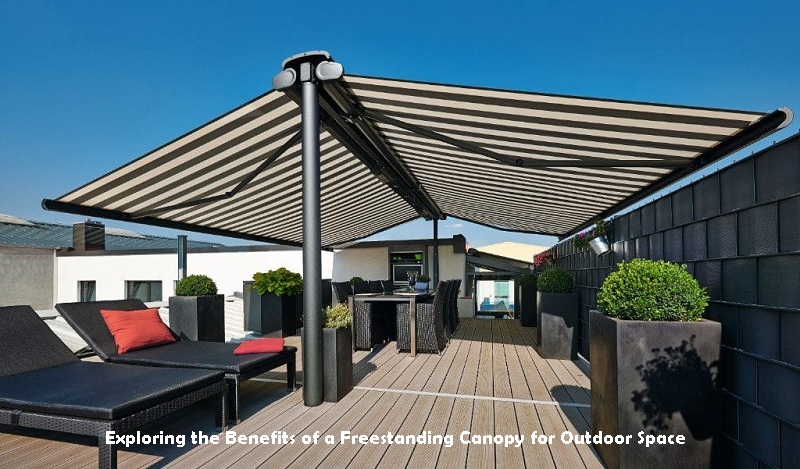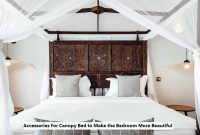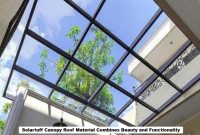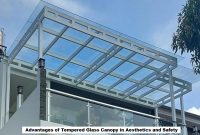
A canopy is a versatile and functional building element for any outdoor space that offers shade, protection, and aesthetic appeal. Among the various types of canopies, freestanding canopy are one of the variants that have gained popularity due to their flexibility in a wide range of applications.
What is a Freestanding Canopy?
A freestanding canopy is a structure that stands on its own and does not rely on a wall or building for support. This type of canopy is usually equipped with sturdy poles or frames, so it can stand on its own.
Freestanding canopies are available in a variety of designs, ranging from simple square or rectangular structures to more elaborate and decorative styles. Their flexibility makes them ideal for creating shaded areas in gardens, patios, poolside areas, or even outdoor events.
The materials used in freestanding canopies vary, depending on the intended use and durability requirements. Common materials include metal frames such as aluminum or steel paired with fabric coverings made of polyester, acrylic, or PVC. Some canopies also come with weatherproof coatings to ensure they last in harsh outdoor conditions.
Benefits of Freestanding Canopies
- Flexibility: One of the main benefits of freestanding canopies is their ability to adapt to a variety of spaces. They can be easily repositioned or moved to suit changing needs. For example, hosting a party or rearranging the layout of a garden.
- Aesthetic Appeal: Freestanding canopies are available in a variety of styles and colors, allowing homeowners and businesses to match their existing outdoor décor. They can also customized to reflect personal tastes or brand aesthetics.
- Weather Protection: These canopies provide reliable protection from the sun, rain, and even a gentle breeze. They are an excellent solution for protecting outdoor furniture and ensuring comfort during outdoor activities.
- Ease of Installation: Compared to permanent structures, freestanding canopies are relatively easy to install. Many models are design self-assembly, saving time and installation costs.
Popular Materials for Freestanding Canopies
Here are some common materials use in freestanding canopy:
- Aluminum: Lightweight, rust-resistant, and durable. Aluminum frame types are popular for both residential and commercial canopies.
- Steel: Steel frames offer greater strength and stability, making them suitable for larger or heavy-duty canopies.
- Polyester Fabric: This material is widely used for canopy covers, as it is waterproof and has UV protection.
- PVC and Acrylic: These materials are known for their durability, water resistance, and ability to withstand various weather conditions.
Quoted from the J&K Marine YouTube video, the use of freestanding canopies is very diverse and provides significant benefits in various fields, especially in recreational areas. At lake facilities, similar canopies serve as ideal resting places, protecting from the heat of the sun after swimming. For anglers, canopies can be installed at several points on the lakeshore, providing comfortable shade while waiting for the fish to take their bait. They can fish for hours without worrying about being exposed to the scorching sun.
Freestanding canopies are a practical and stylish solution to beautify any outdoor space. Their flexibility, durability, and ease of installation make them an attractive option for homeowners, businesses, and event organizers.
With a variety of materials and designs to choose from, freestanding canopies can meet a variety of needs and preferences, ensuring functionality and aesthetic appeal. Whether you want to create a cozy garden or a shaded area for guests, a freestanding canopy is a worthy investment to consider. /Siti



